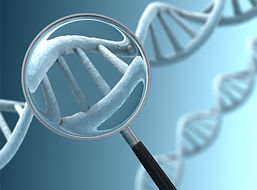
Preimplantation Genetic Diagnosis (PGD)
Written by: Dr. Mohammed Agdi
Numerous pre implantation genetic diagnoses (PGD) are now possible. Couples, who are at risk of passing inherited genetic diseases to their children, can benefit from the new advances in genetic testing. Through PGD for inherited single gene disorders, we help couples to achieve their goal of having a healthy baby free from the genetic disorder that runs in the family.
There are hundreds of genetic disorders that can be diagnosed and PGD being offered. The following list shows example of genetic disorders in Saudi Arabia (but not limited to):
• Sickel-cell anemia
• Thalassemia
• Intellectual disability
• Congenital glaucoma
• Bardet–Biedl syndrome
• Meckel–Gruber syndrome
• Organic acidemias
• Lysosomal storage disorders
• Retinal dystrophies
• Hearing loss
• Primary microcephaly
• Sanjad-Sakati syndrome
• Joubert syndrome
• Muscular dystrophy
• Desanto-Shinawi syndrome
• Waardenburg-Shah syndrome
• Hirschsprung's disease
• Wolf-Hirschhorn syndrome
• Familial intrahepatic cholestasis
• Aicardi-Goutieres syndrome
• Galactosemia
• Cystic fibrosis
• Other unlisted genetic disorders (briefing)
We offer referring to genetic counseling before attempting the PGD process. You will be explained the steps of PGD treatment. Both couple and affected child, if present, are required to give sample of blood to process it for Pre-PGD testing to develop the genetic probes (6-8 weeks) and once are ready, you will be contacted by the PGD coordinator to arrange your visit to your physician to start the process of IVF.
PGD is performed as a part of an In Vitro Fertilization cycle where multiple eggs are produced, retrieved from the ovaries and fertilized with the husband's sperm in the Embryology Laboratory. IVF gives us access to embryo(s) in vitro. PGD is then performed by removing one or two cells from each embryo through a procedure called embryo biopsy. These cells are analyzed for the presence of the pre-identified genetic disorder. This sophisticated and technologically advanced testing attempts to identify embryos which are free of the pre-identified genetic disease. So couple will be more able to achieve their goal of having a healthy baby.
Often, embryos need to be frozen for testing results to be available (1-2 weeks) and the embryos will be transferred into the uterus in a future cycle.
Informed Consent for the treatment is essential and has to be completed by both husband and wife.

